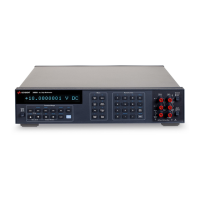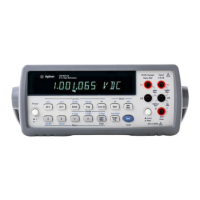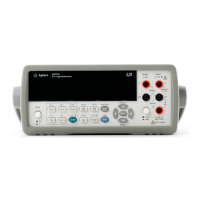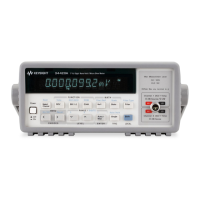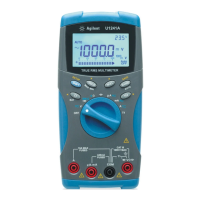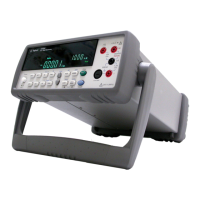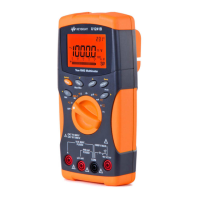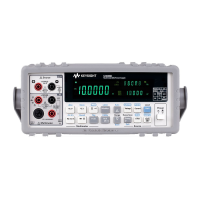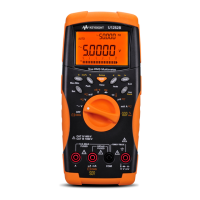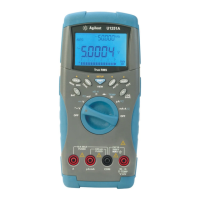116 34410A/11A/L4411A User’s Guide
4 Measurement Tutorial
Auto Zero On/Off
Enabling the auto zero feature (ON) provides greater accuracy; however, the
additional measurement (of zero) reduces the reading speed.
Integration
There are two methods of integrating the sampled data taken in the
measurement, NPLC's and Aperture.
NPLC's sets the number of power line cycles in the gating of the measurement.
The range of choices for NPLC includes 0.001 and 0.002 (for 34411A/L4411A),
0.006, 0.06, 0.02, 0.2, 1, 2, 10 and 100.
The fractional NPLC values offer faster measurements, at the expense of some
accuracy. When you set the NPLC to 1 or more, you not only achieve improved
accuracy associated with time averaging, but also achieve rejection of the
power–line interference (normal mode rejection, or NMR); the greater the
integral NPLC value, the larger the NMR.
Aperture is the period, measured in seconds, during which the multimeter's
analog–to–digital (A/D) converter samples the input signal for a
measurement. A longer aperture yields better resolution; a shorter aperture
provides for faster measurements. This feature allows the user to set a specific
measurement period, not based on power line frequency. Values range from
100
μs to 1 s for the 34410A, and from 20 μs to 1 s for the 34411A/L4411A.
No normal mode rejection is provided in aperture mode.
Offset Compensation
With offset compensation enabled (ON), the multimeter makes a normal
temperature measurement first, followed by a second measurement to
determine any offset voltage in the input circuitry. The resultant displayed
measurement corrects for this offset. Enabling offset compensation increases
measurement time.
NULL Reading:
The multimeter allows a separate null setting to be saved for the temperature
function. When making null measurements, each reading is the difference
between a stored null value and the input signal. One application of NULL is to
increase accuracy of two–wire resistance measurements by first nulling the
closed–circuit test lead resistance.
UG_ED5.book Page 116 Thursday, March 1, 2012 11:28 AM
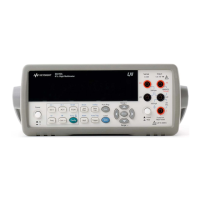
